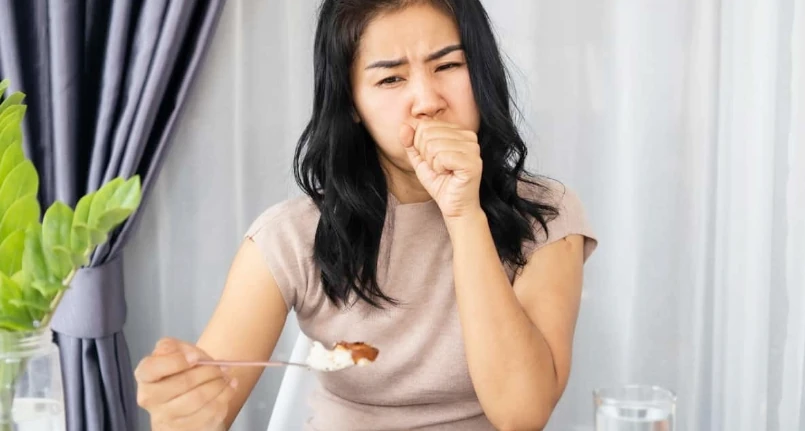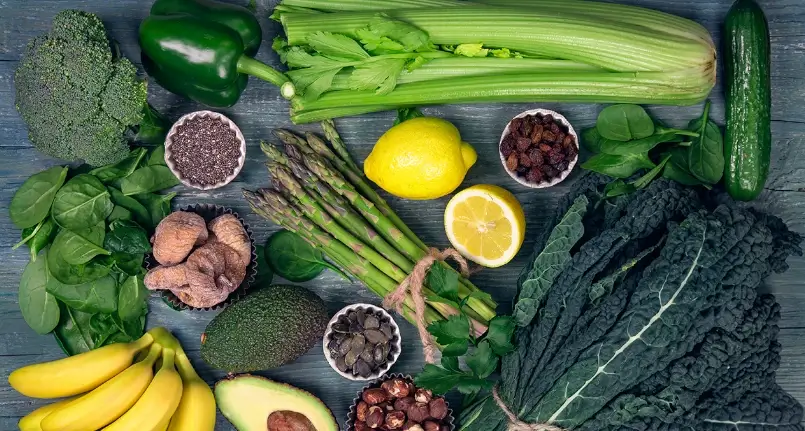Introduction
What are the reasons why you feel cold after eating a meal? The answer is never just one. In fact, body temperature naturally varies after eating, although this slight change in heat often goes unnoticed. A number of circumstances can trigger this chilled feeling. In most cases (almost always minor), it is a symptom of the digestive process in progress: the body is using energy in metabolizing and digesting the food that has just been ingested. Chills, changes in body temperature , chills in the hands and face, however, could be signsof a medical condition, as well as being linked to the consumption of certain foods .
Cause of cold after meals: Diet
A certain diet could be responsible for the feeling of cold felt after a meal. Several studies have indicated that both intermittent fasting and calorie restriction of some diets can cause this problem. Low-calorie diets are an example of this: caloric intake is an important regulator of energy production and, consequently, of the variation in body temperature. Long-term calorie reduction with adequate nutrition is associated with lower body temperature in both normal weight and overweight adults . Due to the lower calorie intake, the body compensates by lowering the temperature to save energy. Generally speaking, the more you limit your calorie intake , especially over the long term, the more likely you are to feel cold .
Intermittent fasting (IF), an eating pattern in which you alternate between fasting and eating at regular intervals, can also cause the same chilled feeling. There are many intermittent fasting schedules: some methods involve fasting every day for 14-16 hours, with an 8-10 hour eating window, while other methods involve fasting every other day. This diet has been associated with many health benefits, but has also been shown to increase sensitivity to cold. One potential cause is hypoglycemia , which can occur while fasting. Low blood sugar levels can make people more sensitivefeeling cold or causing cold sweats .
Chills often occur when you are cold .
Foods that increase the feeling of cold after meals
Some foods can affect body temperature, while others can simply exert a cooling sensation. While eating spicy foods , for example, can trigger an immediate warming effect in the mouth, it actually causes a slight decrease in body temperature. Chili peppers such as the jalapeño, habanero and cayenne pepper contain a chemical called capsaicin . This compound is responsible for the spiciness of the peppers. When capsaicin is ingested, the brain sends a message to the body that it is in an overheated condition. The sweatwhich often occurs as a result of the heat caused by the intake of spicy foods , cools the body as it evaporates on the skin , lowering the core temperature. Peppermint tea , on the other hand, boasts a high content of menthol , which is capable of increasing blood flow and providing a cooling effect, although it does not reduce body temperature.
Consuming cold, refreshing foods and drinks reduces body temperature and causes a feeling of general chilling. Let’s think about ice cream on a hot summer day. Eating or drinking cold foods can cause a slight decrease in body temperature of 0.28°C after 5 minutes, which then returns to normal within 20 minutes of ingesting a cold drink.
Cold after eating: Medical conditions
Although feeling cold after eating is generally harmless, it can also be a symptom of an uncontrolled or undiagnosed medical condition, for which a medical consultation, listing the symptoms, is essential.
Hypothyroidism . Constantly feeling cold after eating can indicate hypothyroidism, a condition in which the body does not produce enough thyroid hormones . Low levels of thyroid hormones can cause a decrease in metabolic rate and digestive function , among other complications, as well as increased sensitivity to cold. In hypothyroidism, the metabolism tends to slow down, reducing the amount of heat produced by the body. While feeling cold may not only occur after eating, low thyroid levels can make you more sensitive to cold after eating, as the body needs more energy to digest food.
Anemia . Red blood cells areresponsible for carrying oxygen from the lungs to the rest of the body. Feeling cold is one of the main symptoms of anemia , which is a shortage of red blood cells as a result of lack of oxygen being carried throughout the body. People who are anemic often feel cold and shiver at any time of the day, even after eating. People with diabetes may react the same way, in which blood sugar spikes occur due to insufficient insulin production by the pancreasor the body’s inability to use insulin effectively. If left untreated or unmanaged, diabetes can cause kidney and circulation problems that can cause a chilled sensation, especially in the extremities of the legs and feet .
Idiopathic postprandial syndrome . Experiencing shaking and shivering after eating is often a symptom of idiopathic postprandial syndrome (IPS), a condition that refers to symptoms of low blood sugar. People with idiopathic postprandial syndrome usually experience hypoglycemic symptoms 2 to 5 hours after a meal. In addition to the tremors and shivering, sweating , dizziness and weakness appear. The cause of IPS is unknown. However, some researchers believe that eating foods with a high glycemic index , such as refined carbohydrates and foods high in sugar , may contribute to the symptoms of the medical condition.
Sometimes the feeling of constant cold is determined by other reasons.




